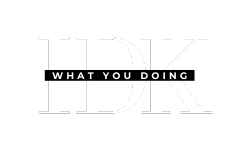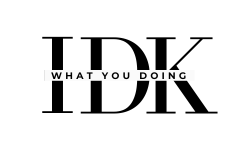Posted In: Behavioral Finance, Drivers of Value, Economics, Leadership, Management & Communication Skills, Portfolio Management
Editor’s Word: In reminiscence of Daniel Kahneman, we have now reposted this Enterprising Investor article which shares insights from his presentation on the 2018 CFA Institute Annual Convention.
Nobel laureate Daniel Kahneman reworked the fields of economics and investing. At their most elementary, his revelations show that human beings and the selections they make are way more difficult — and way more fascinating — than beforehand thought.
He delivered a fascinating mini seminar on a number of the key concepts which have pushed his scholarship, exploring instinct, experience, bias, noise, how optimism and overconfidence affect the capitalist system, and the way we are able to enhance our resolution making, on the 71st CFA Institute Annual Convention in Hong Kong.
“Optimism is the engine of capitalism,” Kahneman mentioned. “Overconfidence is a curse. It’s a curse and a blessing. The individuals who make nice issues, when you look again, they had been overconfident and optimistic — overconfident optimists. They take huge dangers as a result of they underestimate how huge the dangers are.”
However by learning solely the success tales, persons are studying the incorrect lesson.
“For those who have a look at everybody,” he mentioned, “there may be a lot of failure.”
The Perils of Instinct
Instinct is a type of what Kahneman calls quick, or System 1, considering and we regularly base our selections on what it tells us.
“We belief our intuitions even after they’re incorrect,” he mentioned.
However we can belief our intuitions — supplied they’re based mostly on actual experience. And whereas we develop experience by way of expertise, expertise alone isn’t sufficient.
In actual fact, analysis demonstrates that have will increase the boldness with which individuals maintain their concepts, however not essentially the accuracy of these concepts. Experience requires a selected sort of expertise, one which exists in a context that provides common suggestions, that’s successfully testable.
“Is the world through which the instinct comes up common sufficient in order that we have now a possibility to study its guidelines?” Kahneman requested.
In relation to the finance sector, the reply might be no.
“It’s very tough to think about from the psychological evaluation of what experience is you could develop true experience in, say, predicting the inventory market,” he mentioned. “You can’t as a result of the world isn’t sufficiently common for individuals to study guidelines.”
That doesn’t cease individuals from confidently predicting monetary outcomes based mostly on their expertise.
“That is psychologically a puzzle,” Kahneman mentioned. “How may one study when there’s nothing to study?”
That kind of instinct is de facto superstition. Which suggests we shouldn’t assume we have now experience in all of the domains the place we have now intuitions. And we shouldn’t assume others do both.
“When any individual tells you that they’ve a powerful hunch a few monetary occasion,” he mentioned, “the protected factor to do is to not imagine them.”
Noise Alert
Even in testable domains the place causal relationships are readily discernible, noise can distort the outcomes.
Kahneman described a research of underwriters at a well-run insurance coverage firm. Whereas not a precise science, underwriting is a site with learnable guidelines the place experience will be developed. The underwriters all learn the identical file and decided a premium. That there could be divergence within the premium set by every was understood. The query was how giant a divergence.
“What proportion would you count on?” Kahneman requested. “The quantity that involves thoughts most frequently is 10%. It’s pretty excessive and a conservative judgment.”
But when the typical was computed, there was 56% divergence.
“Which actually signifies that these underwriters are losing their time,” he mentioned. “How can or not it’s that individuals have that quantity of noise in judgment and never concentrate on it?”
Sadly, the noise downside isn’t restricted to underwriting. And it doesn’t require a number of individuals. One is commonly sufficient. Certainly, even in additional binary disciplines, utilizing the identical information and the identical analyst, outcomes can differ.
“At any time when there may be judgment there may be noise and doubtless much more than you suppose,” Kahneman mentioned.
For instance, radiologists got a collection of X-rays and requested to diagnose them. Generally they had been proven the identical X-ray.
“In a surprisingly excessive variety of circumstances, the analysis is completely different,” he mentioned.
The identical held true for DNA and fingerprint analysts. So even in circumstances the place there must be one foolproof reply, noise can render certainty unimaginable.
“We use the phrase bias too typically.”
Whereas Kahneman has spent a lot of his profession learning bias, he’s now targeted on noise. Bias, he believes, could also be overdiagnosed, and he recommends assuming noise is the wrongdoer in most decision-making errors.
“We must always take into consideration noise as a attainable rationalization as a result of noise and bias lead you to completely different cures,” he mentioned.
Hindsight, Optimism, and Loss Aversion
After all, after we make errors, they have an inclination to skew in two opposing instructions.
“Persons are very loss averse and really optimistic. They work in opposition to one another,” he mentioned. “Folks, as a result of they’re optimistic, they don’t understand how dangerous the chances are.”
As Kahneman’s analysis on loss aversion has proven, we really feel losses extra acutely than features.
“Our estimate in lots of conditions is 2 to 1,” he mentioned.
But we are likely to overestimate our probabilities of success, particularly throughout the planning section. After which regardless of the end result, hindsight is 20/20: Why issues did or didn’t work out is at all times apparent after the actual fact.
“When one thing occurs, you instantly perceive the way it occurs. You instantly have a narrative and a proof,” he mentioned. “You may have that sense that you just discovered one thing and that you just received’t make that mistake once more.”
These conclusions are normally incorrect. The takeaway shouldn’t be a transparent causal relationship.
“What you need to study is that you just had been shocked once more,” Kahneman mentioned. “It’s best to study that the world is extra unsure than you suppose.”
So on this planet of finance and investing, the place there may be a lot noise and bias and so little reliable instinct and experience, what can professionals do to enhance their resolution making?
Kahneman proposed 4 easy methods for higher resolution making that may be utilized to each finance and life.
1. Don’t Belief Folks, Belief Algorithmshttps://rpc.cfainstitute.org/en/research/financial-analysts-journal/2024/financial-analysts-journal-second-quarter-2024-vol-80-no-2
Whether or not it’s predicting parole violators and bail jumpers or who will succeed as a analysis analyst, algorithms are usually preferable to unbiased human judgment.
“Algorithms beat people about half the time. They usually match people about half time,” Kahneman mentioned. “There are only a few examples of individuals outperforming algorithms in making predictive judgments. So when there’s the opportunity of utilizing an algorithm, individuals ought to use it. We now have the concept it is rather difficult to design an algorithm. An algorithm is a rule. You possibly can simply assemble guidelines.”
And after we can’t use an algorithm, we must always prepare individuals to simulate one.
“Practice individuals in a mind-set and in a approach of approaching issues that can impose uniformity,” he mentioned.
2. Take the Broad View
Don’t view every downside in isolation.
“The one finest recommendation we have now in framing is broad framing,” he mentioned. “See the choice as a member of a category of choices that you just’ll most likely should take.”
3. Check for Remorse
“Remorse might be the best enemy of fine resolution making in private finance,” Kahneman mentioned.
So assess how inclined shoppers are to it. The extra potential for remorse, the extra doubtless they’re to churn their account, promote on the incorrect time, and purchase when costs are excessive. Excessive-net-worth people are particularly danger averse, he mentioned, so attempt to gauge simply how danger averse.
“Shoppers who’ve regrets will typically hearth their advisers,” he mentioned.
4. Search Out Good Recommendation
A part of getting a wide-ranging perspective is to domesticate curiosity and to hunt out steering.
So who’s the best adviser? “An individual who likes you and doesn’t care about your emotions,” Kahneman mentioned.
For him, that particular person is fellow Nobel laureate Richard H. Thaler.
“He likes me,” Kahneman mentioned. “And couldn’t care much less about my emotions.”
For those who appreciated this submit, don’t overlook to subscribe to the Enterprising Investor.
All posts are the opinion of the writer. As such, they shouldn’t be construed as funding recommendation, nor do the opinions expressed essentially mirror the views of CFA Institute or the writer’s employer.
Picture courtesy of IMAGEIN
Skilled Studying for CFA Institute Members
CFA Institute members are empowered to self-determine and self-report skilled studying (PL) credit earned, together with content material on Enterprising Investor. Members can file credit simply utilizing their online PL tracker.



